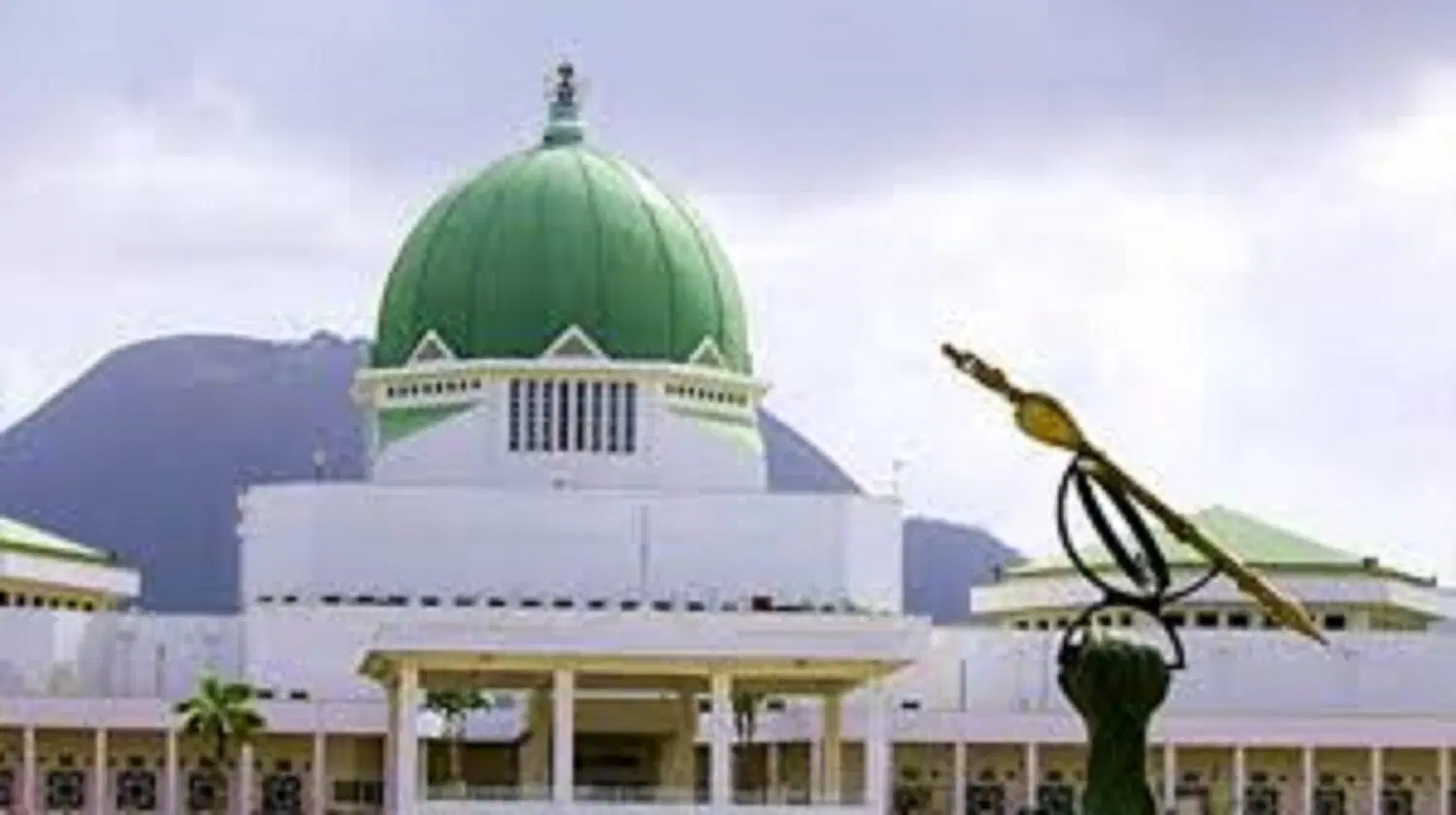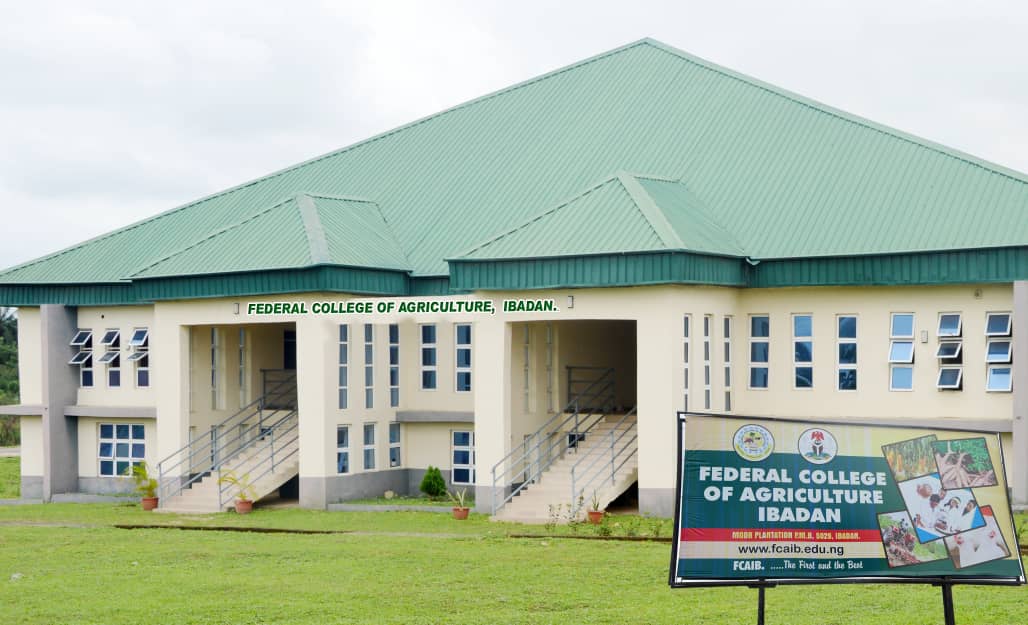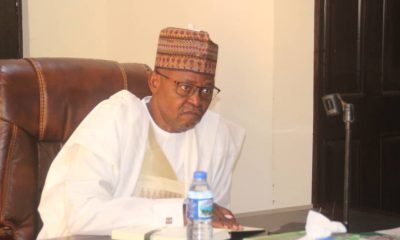Education
WASSCE: NASS wades into controversy

WASSCE: NASS wades into controversy
The National Assembly yesterday waded into the controversy generated by the Federal Government’s plan to peg the age limit for students to write the West Africa Senior Secondary School Certificate, WASSCE, examination at 18 years.
It will be recalled that the Minister of Education, Professor Tahir Mamman, announced plans on Sunday by the federal government to set the age limit for the examination to 18 years.
This is even as the government’s decision yesterday elicited more condemnations, as former Vice President Abubakar Atiku and civil society organisations, CSOs, described it as archaic and draconian.
They also asked the government to put it on hold and call a meeting of stakeholders in the education sector to deliberate on the matter.
It’ll be subjected to public hearing — Senate
Reacting to the development yesterday, the Senate said it would subject the issue to public hearing when it comes before senators.
The Chairman, Senate Committee on Media and Public Affairs, Senator Yemi Adaramodu (APC, Ekiti South), said: “The Senate will consider, through it’s relevant committee, public views on any government policy brought to our legislative notice. Whatever is brought to the Senate for constitutional and statutory stamps shall be subjected to legislative crucible which includes public hearings.”
We haven’t been briefed — Reps
On his part, spokesman of the House of Representatives, Akin Rotimi, said the Green Chamber has no position on the matter yet, as members have not been briefed.
‘’I cannot say anything for now. When the House resumes and the matter is brought before it, it will be looked into,” he said.
However, aside from the former vice president, others who reacted included founder of Concerned Parents and Educators Network, CPE, Mrs Yinka Ogunde; the National Coordinator of Education Rights Campaign, ERC, Hassan Soweto; Resource Centre for Human Rights and Civic Education, CHRICED; and Global Rights Nigeria, among others.
They were reacting to the statement by the Minister of Education, on Sunday night that the government had pegged the age at which candidates would sit for the examination at 18 beginning from next year.
The development would also mean that such candidates would not be able to write the Unified Tertiary Matriculation Examination, UTME, conducted by the Joint Admissions and Matriculation Board, JAMB, for placement into higher institutions until they are 18, since candidates need WASSCE results to back up their admission processes.
Mamman had earlier in the year, suggested making 18 the admission age into higher institutions during a stakeholders’ meeting called by JAMB, but was opposed by most of the participants
Policy archaic, barrier to academic freedom — Atiku
Condemning government’s declaration yesterday, Atiku, who was the presidential candidate of People’s Democratic Party, PDP, in the 2023 elections, described the policy thrust as absurd and a barrier to academic freedom.
Atiku aired his thoughts in a piece, titled “Tinubu’s policy on age limit for tertiary education admission belongs in the Stone Ages,” posted on his Facebook page.
He wrote: “The recent policy of the Federal Ministry of Education pegging age limit for entry to tertiary institutions is an absurdity and a disincentive to scholarship.
“The policy runs foul of the delineation of responsibilities in a federal system of government such as we are practising, and gives a graphic impression of how the Tinubu government behaves like a lost sailor on a high sea.
“Otherwise, how is such anti-scholarship regulation the next logical step in the myriad of issues besetting our educational system?
“To be clear, the Nigerian constitution puts education in the concurrent list of schedules, in which the sub-national governments enjoy more roles above the Federal Government.
“Therefore, it is extra-constitutional for the Federal Government to legislate on education like a decree.
“The best global standard for such regulation is to allow the sub-national governments to make respective laws or rules on education.
“It is discouraging that even while announcing this obnoxious policy, the government inadvertently said it had no plan to cater for specially gifted pupils.
“The statement is an embarrassment to the body of intellectuals in the country because it portrays Nigeria as a country where gifted students are not appreciated.
“The irony here is that should the Federal Government play any role in education, it is to set up mechanisms that will identify and grant scholarships to gifted students, not minding their ages, before applying for admission into tertiary institutions.
“This controversial policy belongs in the stone ages and should be roundly condemned by everyone who believes in intellectual freedom and accessibility.”
FG should not act like a military regime —CPE
In her reaction, the founder of CPE, Mrs Yinka Ogunde, noted that the Federal Government has not considered many things before deciding on the policy.
“The Federal Ministry of Education cannot be run by making arbitrary decisions. It has created dilemmas and confusion all over the country. We need to start from the foundation. If stakeholders in the sector agreed that students should be at least 18 before seeking admission to tertiary institutions, among others, it is not something to be done by fiat.
“We will have to start from primary school where no pupil is allowed to be in primary one unless he or she is six years. Then we enforce such and if any private school defaults, the owner can be penalised and if it is a public school, the head teacher can be sanctioned too.
“But to wake up and say from next year, we would do this, is not realistic. We are not in a military regime and people should be consulted.
“If we are starting it this year, what becomes of millions of secondary school students who are not going to clock 18 before they graduate from their schools? We are not in a dictatorship and necessary consultations must be done and if we are starting now, it should be from the foundation, which is primary school,” she said.
No minimum age for marriage but education —Global Rights
Also reacting, Executive Director, Global Rights Nigeria, Abiodun Baiyewu, called on the Federal Government to review the policy.
Baiyewu said: “I think the policy needs to be reviewed, given the global competition Nigerian children will be confronted with, aside taking away their right to be self-determining, and right to development, which are fundamental human rights.
“Most advanced countries mandate that children remain in school till they turn 17 to ensure they get as much education as possible, given that in most systems, they can complete secondary education.
“In Nigeria, education is not compulsory. Nigeria has the most number of out-of-school children in the world (20 million).
“Barring children from accessing higher education till they turn 18 does not guarantee them the security of staying in secondary school till they turn 18. A break in their education might mean the end of their education.
“It is amusing that the government has a minimum age for accessing tertiary education but no minimum age for marriage!
“Thousands of girls are withdrawn from school and married off before they are equipped physically, psychologically and/or economically to contend with marriage and the responsibilities it comes with.
“Even in countries where there are minimum access age, there are exceptions for exceptionally gifted children to access tertiary education or their curriculum before they attain the minimum age.
Another retrogressive policy — ANEEJ
Executive Director, Africa Network for Environmental and Economic Justice, ANEEJ, Rev David Ugolor, disagreed with the policy, describing it as retrogressive.
Ugolor accused policymakers of having their children school abroad and failing to consider children back home.
He said: “This is another retrogressive policy that will retard the progress of the country. Unfortunately, most of the policy makers have their families outside the country and they continue to release policies that have no basis for progress.
“The issue of age looks absurd, considering global best practice. I would like to see evidence why this policy will be a good option because the government hardly cares about data.”
Suspend policy immediately – ERC
Similarly, the National Coordinator of Education Rights Campaign, ERC, Hassan Taiwo Soweto, called for immediate suspension of the policy because the minister did not follow due consultation before making such a directive.
“We ask for the immediate suspension of this policy, pending democratic consultation by stakeholders in the education sector. Our call for suspension is based on the following.
‘’First and foremost, the sudden enforcement of this policy has negative implications for thousands of young people who have applied for admission into tertiary institutions and were supremely qualified to do so until the minister of education suddenly decided to enforce this policy.
“As far as we are concerned, we do not agree that the lives and future of our young ones should be forfeited as a result of this policy, which has been dormant for years. Many of these young children and aspiring undergraduates knew nothing about it.
‘’They applied to primary school at an early age, completed this, and moved on to secondary school meritoriously. It is not their fault they graduated from secondary school at an age earlier than the standard prescribed in law, so they should not be punished for something they know nothing about.
“Two, the minister cannot suddenly wake up to remember a policy that has been dormant for years and begin to enforce it just like that. Where is the space for consultation? Where is the respect for the public?
‘’This policy has been routinely flouted by school authorities for decades. The greatest culprits are private primary and secondary schools, which admit pupils at ages earlier than what the standard prescribes.
‘’To make matters worse, the policy of double and triple promotions of brilliant students by these private schools has added to the distortion of educational standards by ensuring that many pupils jump over different stages of their education.
“These are the issues the minister should address first. Where is the inspectorate directorate of the Ministry of Education in all these? To us, what should be enforced first is the respect of school authorities for laid down educational standards.
‘’What the Ministry of education is trying to do now is to ambush students when the real problem is the irresponsibility of the ministry towards the discharge of its function as a monitoring and inspectorate agency for both public and private schools.
“The last reason we are calling for suspension is that this policy does not appear relevant to our reality at present, especially at a period when our understanding and conception of the age of adolescence and adulthood is evolving before our very eyes.
‘’Particularly, in this millennium, adulthood often comes earlier than 18 years. This is why many countries in the world are reviewing the legal framework for the age of adulthood in their respective jurisdictions.
“At the same time, we recognise the concern that many have, that children are being robbed of their childhood because of the demand and pressure of early and rushed education. This is a valid concern, but it is not something that can be imposed, especially by a Ministry of Education that has been brazenly irresponsible in the discharge of its functions.
“We need a middle point, and the only way to arrive at that is to subject this policy to a thorough discussion by stakeholders before rushing to enforce it.
‘’To this extent, we ask the minister to convene a summit of stakeholders in the education sector, including parents, unions, and civil society organisations, to have a thorough discussion that can link Nigeria’s national policy on education with current realities. In the meantime, this policy should be immediately suspended.”
Education
FAB Luxury Court Sets A Rare Benchmark For Excellence In Africa

FAB Luxury Court Sets A Rare Benchmark For Excellence In Africa
~By Oluwaseun Fabiyi
Fab Luxury Court distinguishes itself as the premier choice for reliable investors and proactive developers in Nigeria and Africa.While numerous real estate entities operate within the country, Fab Luxury Court stands out for its exceptional honesty and integrity, delivering on the promises showcased on its social media page to distinguished customers globally.
As of now, no investors, whether domestic or international, have expressed regret over investing in or partnering with Fab Luxury Court. The company’s commitment to accessibility, accountability, and transparent financial reviews sets it apart from its contemporaries, rendering it a prized asset among its extensive clientele worldwide. Thousands of customers continue to patronize Fab Luxury Court due to its impeccable integrity and visionary approach.
*Why is Fab Luxury Court a worthwhile investment that warrants prompt consideration rather than hesitation?*
Fab Luxury Court’s security measures are exemplary and deserving of commendation, providing investors with capital protection through a robust structured framework, transparent reporting, and comprehensive legal documentation, thereby guaranteeing outstanding and secure returns.
Fab Luxury Court has further cemented its position as a leading developer and real estate powerhouse in Nigeria and Africa, currently managing several high-end estates in Maryland, Ikeja, Lagos and its surrounding areas.Fab Luxury Court demonstrates its unwavering commitment to excellence in Nigeria’s real estate sector through its best-selling estates in Ikeja.
Undoubtedly, partnering with and patronizing Fab Luxury Court will significantly contribute to securing your future; as you plan to associate with them in 2027, we encourage you to maintain a positive outlook and unwavering confidence in your future wealth.
Education
Edukate Africa holds summit to tackle funding barrier in education

Edukate Africa holds summit to tackle funding barrier in education
By Ifeoma Ikem
Edukate Africa, an edu-fintech platform is set to host the Disrupt Education Summit Africa (Disrupt ED) aimed at tackling funding barriers, skills gaps and curriculum mismatch in Nigeria’s education system.
The Director of Edukate Africa, Francis Omorojie who disclosed this to newsmen explained that the initiative was driven by the high rate of school dropouts linked largely to financial constraints, particularly at the higher institution
Omorojie said the summit scheduled for January 29 at the University of Lagos will bring together government officials, universities, financial institutions, private sector players and philanthropies to rethink education financing and prepare young Nigerians for the realities of today’s digital workforce.
He said that more than 50 percent of students who drop out of higher institutions do so because they cannot afford tuition and related costs, a situation he described as a major contributor to unemployment, brain drain and irregular migration.
“Africa’s youthful population could either become an economic advantage or a liability, depending on how well education and talent development are managed.
“Education is a fundamental need, but financial exclusion has continued to shut out many promising young people. When students drop out, it feeds unemployment and social instability.
“Our mission is to build innovative and sustainable financial models that keep young Africans in school and help them become productive,” he said.
He noted that Edukate Africa is deploying blended financing solutions that include tuition guarantees, technology driven scholarship platforms, gig and remote work opportunities for students, and partnerships with universities and philanthropies to establish endowment and alumni funds.
He said that the platform pays tuition directly to institutions after verifying students’ admission and academic records, ensuring transparency and accountability for donors.
“The summit would focus on aligning education with the fast changing nature of work, driven by digital transformation, artificial intelligence and emerging technologies as any university curricula are lagging behind workplace realities, leaving graduates ill prepared for employment.
“There is a clear disconnect between what students are taught and what employers need. This summit will create a roundtable where government, academia and the private sector can agree on the skills required for today’s economy and how to integrate them into learning.
“It will also examine education financing models, including how banks and financial institutions can design student friendly funding products, and how existing initiatives such as the Nigeria Education Loan Fund can be strengthened and scaled.’’
Omorojie added that Edukate Africa would use the summit to launch the CommUniversity Endowment Fund, a community led investment fund designed to generate sustainable returns that will be used to sponsor vulnerable students and support young entrepreneurs.
Unlike traditional grant models, he said the fund would invest in revenue generating businesses, with dividends channeled into education support and seed funding for student led startups.
He said the initiative would also promote innovation through activities such as Pitch My Dissertation, Africathon and inter university debates, encouraging students to turn academic research into commercial solutions and job creating ventures.
According to him, over 1,000 students and recent graduates are expected at the summit, with a partners’ pavilion providing employers and organisations direct access to top talent.
He added that Edukate Africa has already supported students in Nigeria, the United Kingdom and Uganda to complete their education, in some cases with relatively small amounts that made the difference between graduation and dropping out.
He said that the ultimate goal is to move beyond access to education and ensure that young people graduate with relevant skills, funding support and pathways into employment or entrepreneurship, thereby contributing meaningfully to Nigeria’s economic development.
Also speaking, Tosin Adebisi, Co-Founder of Edukate Africa said the Disrupt ED Summit was designed as a disruptive and transformative convergence that would move beyond familiar conversations to practical collaboration.
Adebisi said the summit was built around a new framework called Communiversity, which seeks to integrate universities, policymakers, industry, the third sector and students into a single ecosystem.
“Rather than everyone working in silos, Communiversity brings together policymakers, universities, industry and civil society, with students at the centre, to address access to education, the future of work and Africa’s competitiveness.
“Communiversity model would leverage alumni networks, high net worth individuals and diaspora support to unlock sustainable funding for universities.
“The summit is being organised in partnership with the University of Lagos and the University of Birmingham, with support from the Federal Ministry of Education.’’
The dignitaries that would grace the occasion include, Minister of Education, Dr Tunji Alausa; the Provost and Vice Principal of the University of Birmingham, Professor Nick, the Chief Operating Officer of Semicolon Africa, Ms Ashley Immanuel; and the Chief Executive Officer of Sterling One Foundation, Mrs Olapeju Ibikwe
Education
FCAIB is set to launch degree programmes in partnership with FUNAAB

FCAIB is set to launch degree programmes in partnership with FUNAAB
IBADAN, OYO STATE, NIGERIA – In a groundbreaking move, the Federal University of Agriculture, Abeokuta (FUNAAB) has given the green light for the introduction of two innovative degree programmes at the Federal College of Agriculture, Ibadan (FCAIB), set to kick off in the 2025/2026 academic session.
According to an official release e-signed and made available to the media by Mrs. Wilson Oyekemi, Head of the Public Relations Unit of the institution, the newly approved programmes are B.Sc. (Home Science and Management) and B.Agric. (Agricultural Science).
As stated, the next academic session will witness the official commencement of both degree programmes, which constitutes a major breakthrough in the College’s academic development.
Established in 1921, the Federal College of Agriculture, Ibadan (FCAIB), originally known as the School of Agriculture, proudly stands as Nigeria’s and West Africa’s first agricultural institution, with a long and storied history.
The College’s roots trace further back to 1899, when Moor Plantation, Ibadan was established as a model farm to promote rubber cultivation and general agricultural improvement.
By 1905, the station evolved into an experimental research centre, focusing primarily on cotton production and other key agricultural studies.
The formal establishment of the School of Agriculture in 1921 marked the beginning of structured agricultural education in Nigeria.
Following the regionalization of education in 1954, the school relocated to its present site – where it has since grown into a formidable centre of agricultural learning and innovation.
Over the past century, the Federal College of Agriculture, Ibadan, has consistently upheld its mission of contributing to Nigeria’s agricultural development through qualitative education, skills acquisition, and the production of middle-level manpower for the agricultural sector.
The institution remains committed to empowering students with practical, hands-on skills and modern knowledge tailored to meet the evolving needs of agribusiness and food production in the 21st century.
Becoming Nigeria’s Premier Agricultural Institution, FCAIB envisions becoming the foremost agricultural education institution in Nigeria’s tertiary education system – a vision strengthened by its continued academic expansion and infastructural growth.
With over 100 years of continuous service, the Federal College of Agriculture, Ibadan has built a strong reputation as a leader in agricultural education, training, and research across the subregion.
The College currently offers a wide range of National Diploma (ND) and Higher National Diploma (HND) programmes across several disciplines, including:
National Diploma Programmes:
– Agricultural and Bio-Environmental Engineering Technology
– Agricultural Technology
– Home and Rural Economics
– Horticultural Technology
– Cooperative Economics and Management
– Science Laboratory Technology (SLT)
– Computer Science
– Food Technology
– Office Management Technology
– Library and information Science
– Multimedia Technology
– Organic Agricultural Technology
Higher National Diploma Programmes:
– Agricultural and Bio-Environmental Engineering Technology (Farm Power/Post-Harvest Technology/Soil & Water options)
– Agricultural Extension and Management
– Animal Production Technology
– Crop Production Technology
– Horticultural Technology
– Agribusiness Management
– Pest Management Technology
– Science Laboratory Technology (Microbiology Option)
These programmes are designed to blend theory with practical field experience, ensuring graduates are job-ready and self-reliant in the agricultural sector.
Beyond academic instruction, FCAIB maintains a strong emphasis on research and development, particularly in areas that directly impact food production and sustainable agricultural practices.
Recent infrastructural developments at the institution included the establishment of a Meteorological Centre, a Garri Processing Plant and an Oil Palm Processing Unit, all aimed at enhancing research, student training, and community impact.
The 9th and current Provost who doubled as the 28th Head of the 105 year-old Federal College of Agriculture, Ibadan, Prof. Jonathan Jeremiah Atungwu, a distinguished Nigerian academic Professor of Plant Nematology and an expert in Organic Agriculture and Biopesticides development with
research focus on non-chemical crop protection options, remained a focused and visionary leader.
He is Certified locally and internationally with enviable credentials, some of which include but not limited to:
– Over 100 publications in reputable outlets
– Expertise in Organic Agriculture and Biopesticides development.
– A team player with demonstrated leadership skills and experience in various capacities: Past Dean (COLPLANT) in FUNAAB and LASU, President of several professional societies.
– Membership and leadership in international and local organizations, such as ISOFAR, ISPP, NSPP, NISOP, ADAN and many more.
Prof. Atungwu is a renowned mentor for the upcoming agricultural scientists, teachers, agropreneurs, and youths.
He is happily married, and blessed with pleasant, hardworking, and disciplined children.
-

 celebrity radar - gossips6 months ago
celebrity radar - gossips6 months agoWhy Babangida’s Hilltop Home Became Nigeria’s Political “Mecca”
-

 society6 months ago
society6 months agoPower is a Loan, Not a Possession: The Sacred Duty of Planting People
-

 society5 months ago
society5 months agoReligion: Africa’s Oldest Weapon of Enslavement and the Forgotten Truth
-

 news6 months ago
news6 months agoTHE APPOINTMENT OF WASIU AYINDE BY THE FEDERAL GOVERNMENT AS AN AMBASSADOR SOUNDS EMBARRASSING








